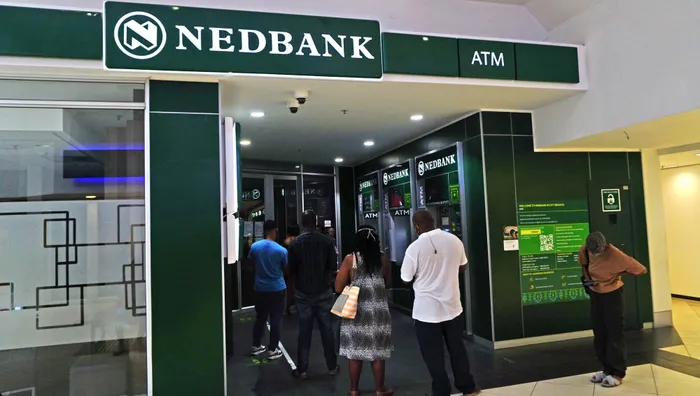Nedbank ready to defend its role in Zondo Commission probe

Nedbank says it continues to cooperate with various further enquiries and investigations that were under way on these transactions. Picture Ian Landsberg African News Agency (ANA)
Nedbank said it is ready to defend any litigation against it arising from the Zondo Commission’s reports on state capture, as there was no evidence of wrongdoing, collusion or corruption on the part of the bank.
This was according to Nedbank’s latest annual report released last week. While the commission made no findings against the bank, it found some transactions involving Nedbank where Regiments acted as a financial adviser to Acsa and Transnet should be subject to further investigation.
“These transactions, as well as transactions concluded by Nedbank with third parties where Regiments played an financial advisory role, have already been the subject of internal and external legal and forensic reviews and, as previously reported, Nedbank’s board and management took comfort that there is no evidence of any wrongdoing, collusion or corruption by Nedbank or our employees,” the annual report said.
The bank said in response to a BR question that “no specific provisions have been raised given our assessment of the merits of the matters”.
”If these transactions were tainted by corruption on the part of Regiments, clients or their employees, Nedbank was unaware of this at the time of the transactions and acted as a reasonable banker based on the knowledge we had at the time. Our fees and returns were market-related and all legal documentation and authorisations for the transactions are in place,” CEO Mike Brown said in the report.
Nedbank said it continued to co-operate with various further enquiries and investigations that were under way on these transactions.
“These engagements may result in Nedbank entering into negotiations or, failing which, becoming involved in litigation and associated regulatory proceedings, with various parties,” the bank said.
On the bank’s financial performance, Brown said the bank had made good progress towards its published 2023 financial targets by exceeding the 2019 diluted headline earnings per share level of 2 565 cents in 2022, a year earlier than planned, and the aim to achieve an ROE (return on equity) greater than the 2019 ROE level of 15% and a cost-to-income ratio of below 54%.
“Given our strong 2022 performance, we have set ourselves revised medium-term (2025) and long-term targets. We aim to achieve an ROE of 17% and a cost-to-income ratio of 52% both in 2025. Over the longer term we aim to improve these to above 18% and below 50% respectively. Achieving these targets should be value-creating for shareholders,” said Brown.
He said South Africa’s economic potential was compelling, but the country was fast reaching a tipping point in a number of areas, as failing state-owned monopolies – in particular those responsible for electricity generation and transmission, transport and logistics, water, and crime prevention and prosecution – were constraints on much-needed investment and, as a result, economic growth and job creation.
This required urgent and decisive action by the government, labour, civil society and business, he said.
BUSINESS REPORT